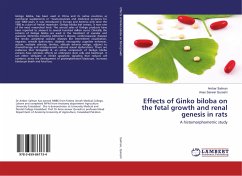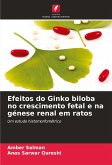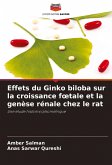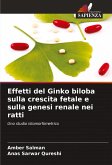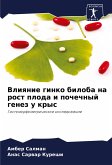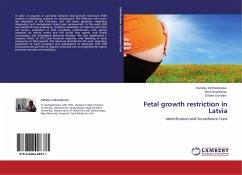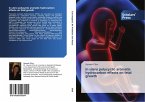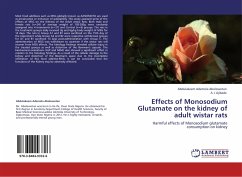Ginkgo biloba, has been used in China and its native countries as nutritional supplements or "neutraceuticals and medicinal purposes for over 5000 years. It was introduced in Europe and America only since the 1980 as a part of herbal repertoire. Ginkgo biloba leaf extract, is now one of the most researched herb. The annual sales of Ginkgo products have been reported to amount to several hundred million euros. Clinically the extracts of Ginkgo biloba are used in the treatment of vascular and avascular dementia including Alzheimer's disease, cerebrovascular diseases like stroke, peripheral vascular diseases like intermittent claudication, migraine, erectile dysfunction, diabetic neuropathy cognitive enhancer, autism, multiple sclerosis, tinnitus, altitude sickness vertigo, adjunct to chemotherapy and antidepressant induced sexual dysfunctions. There are evidences that Ginkgolide B, an active component of Ginkgo biloba extracts have cytotoxic effects on embryonic stem cells and blastocyst. It can either stimulate or inhibit apoptotic signaling that reduces cell numbers, slows the development of postimplantation blastocyst, increases blastocyst death and fetal loss.
Bitte wählen Sie Ihr Anliegen aus.
Rechnungen
Retourenschein anfordern
Bestellstatus
Storno

